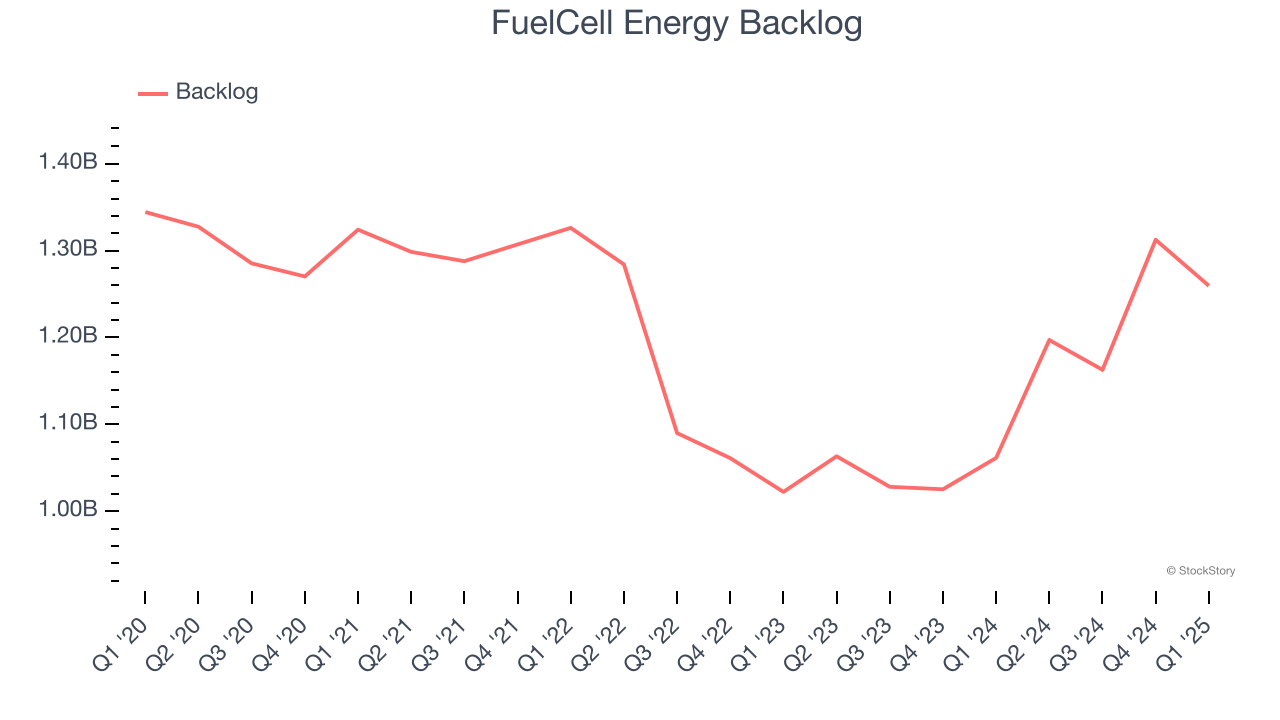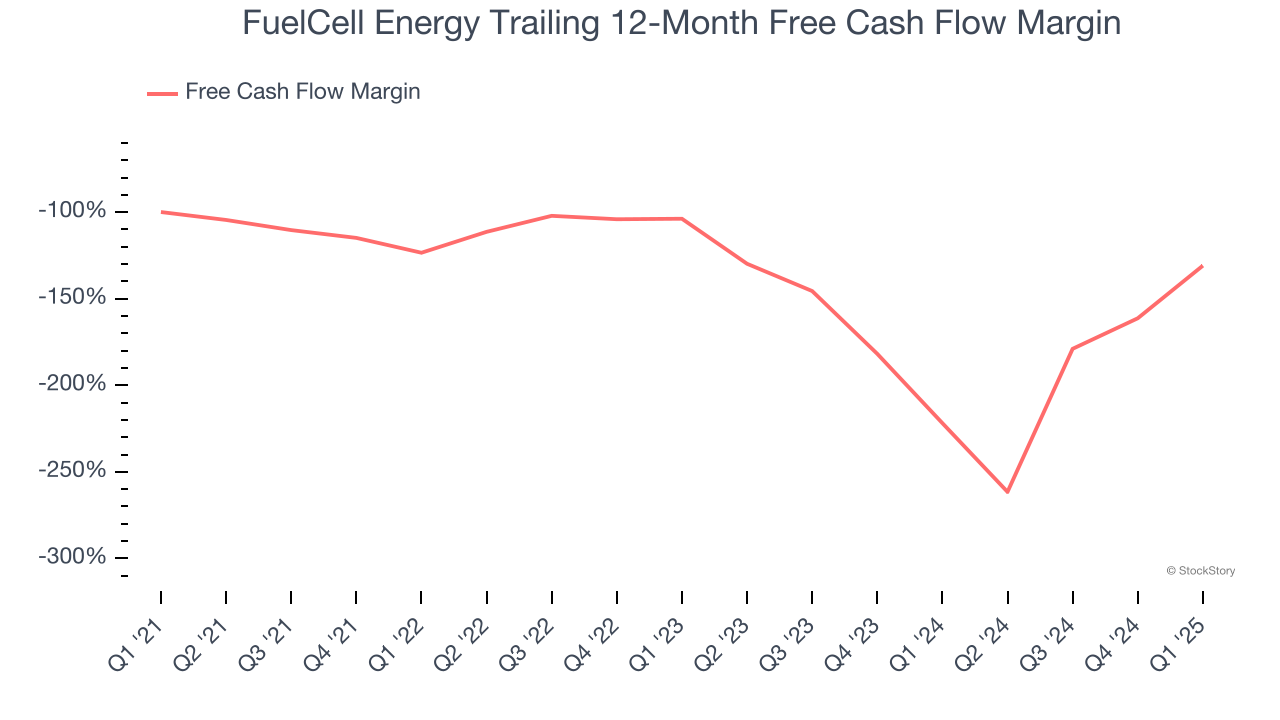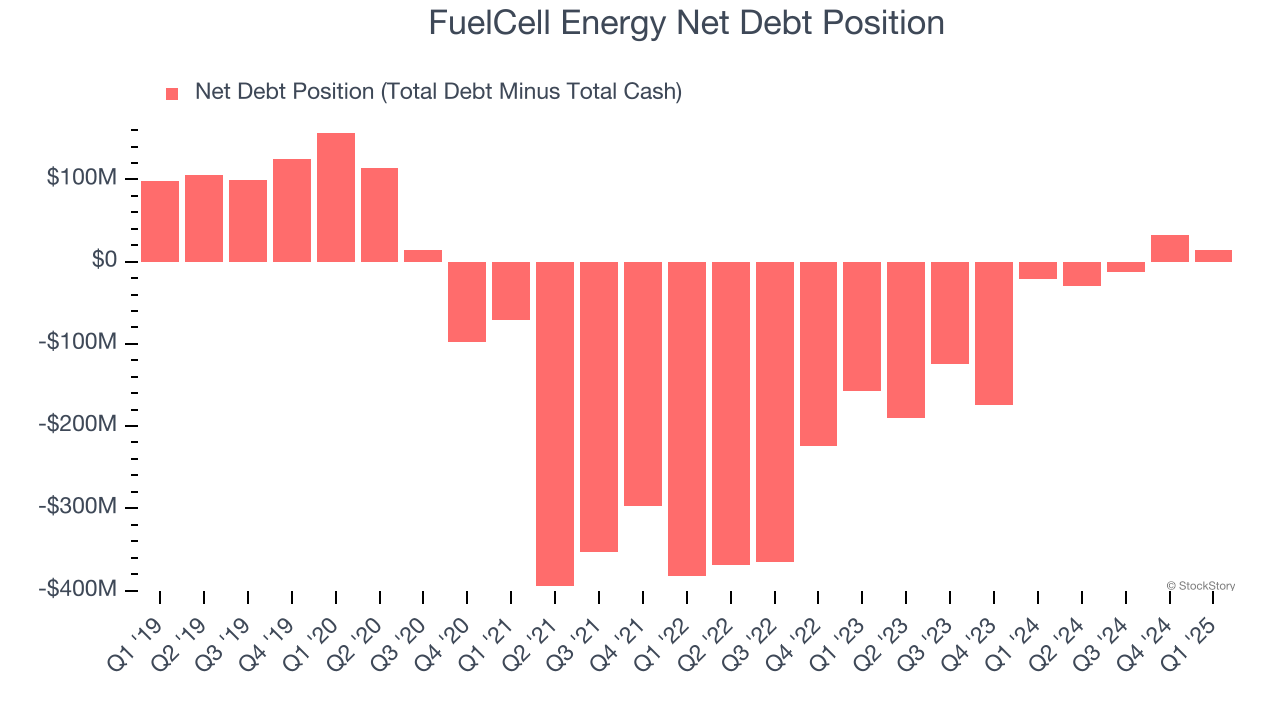
FuelCell Energy has gotten torched over the last six months - since December 2024, its stock price has dropped 45.6% to $5.77 per share. This was partly driven by its softer quarterly results and may have investors wondering how to approach the situation.
Is there a buying opportunity in FuelCell Energy, or does it present a risk to your portfolio? Dive into our full research report to see our analyst team’s opinion, it’s free.
Why Is FuelCell Energy Not Exciting?
Even though the stock has become cheaper, we don't have much confidence in FuelCell Energy. Here are three reasons why FCEL doesn't excite us and a stock we'd rather own.
1. Weak Backlog Growth Points to Soft Demand
Investors interested in Renewable Energy companies should track backlog in addition to reported revenue. This metric shows the value of outstanding orders that have not yet been executed or delivered, giving visibility into FuelCell Energy’s future revenue streams.
FuelCell Energy’s backlog came in at $1.26 billion in the latest quarter, and over the last two years, its year-on-year growth averaged 6.2%. This performance slightly lagged the sector and suggests that increasing competition is causing challenges in winning new orders. 
2. Free Cash Flow Margin Dropping
If you’ve followed StockStory for a while, you know we emphasize free cash flow. Why, you ask? We believe that in the end, cash is king, and you can’t use accounting profits to pay the bills.
As you can see below, FuelCell Energy’s margin dropped by 31 percentage points over the last five years. It may have ticked higher more recently, but shareholders are likely hoping for its margin to at least revert to its historical level. Almost any movement in the wrong direction is undesirable because it’s already burning cash. If the longer-term trend returns, it could signal it’s becoming a more capital-intensive business. FuelCell Energy’s free cash flow margin for the trailing 12 months was negative 131%.

3. Short Cash Runway Exposes Shareholders to Potential Dilution
As long-term investors, the risk we care about most is the permanent loss of capital, which can happen when a company goes bankrupt or raises money from a disadvantaged position. This is separate from short-term stock price volatility, something we are much less bothered by.
FuelCell Energy burned through $169.4 million of cash over the last year, and its $142.1 million of debt exceeds the $128.4 million of cash on its balance sheet. This is a deal breaker for us because indebted loss-making companies spell trouble.

Unless the FuelCell Energy’s fundamentals change quickly, it might find itself in a position where it must raise capital from investors to continue operating. Whether that would be favorable is unclear because dilution is a headwind for shareholder returns.
We remain cautious of FuelCell Energy until it generates consistent free cash flow or any of its announced financing plans materialize on its balance sheet.
Final Judgment
FuelCell Energy isn’t a terrible business, but it doesn’t pass our quality test. After the recent drawdown, the stock trades at $5.77 per share (or a forward price-to-sales ratio of 0.6×). The market typically values companies like FuelCell Energy based on their anticipated profits for the next 12 months, but it expects the business to lose money. We also think the upside isn’t great compared to the potential downside here - there are more exciting stocks to buy. We’d suggest looking at one of our top software and edge computing picks.
High-Quality Stocks for All Market Conditions
Donald Trump’s victory in the 2024 U.S. Presidential Election sent major indices to all-time highs, but stocks have retraced as investors debate the health of the economy and the potential impact of tariffs.
While this leaves much uncertainty around 2025, a few companies are poised for long-term gains regardless of the political or macroeconomic climate, like our Top 9 Market-Beating Stocks. This is a curated list of our High Quality stocks that have generated a market-beating return of 183% over the last five years (as of March 31st 2025).
Stocks that made our list in 2020 include now familiar names such as Nvidia (+1,545% between March 2020 and March 2025) as well as under-the-radar businesses like the once-micro-cap company Kadant (+351% five-year return). Find your next big winner with StockStory today.





